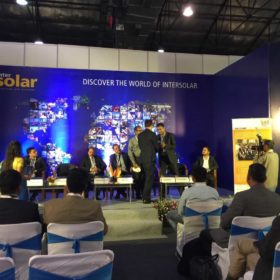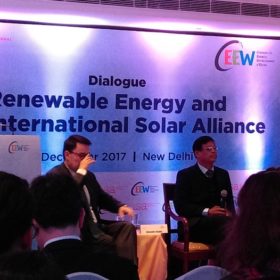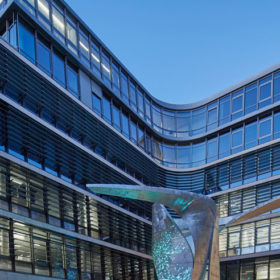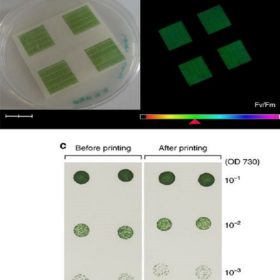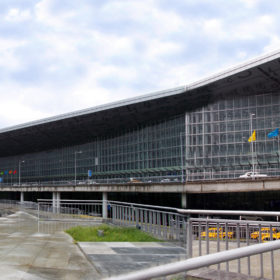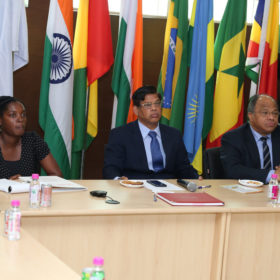Intersolar India highlights challenges, opportunities of residential PV market
This week’s Intersolar India 2017 in Mumbai, which ran from Tuesday to Thursday at the Bombay Exhibition Centre (BEC), highlighted both the potential and the challenges of India’s vast residential PV market. Everything from policy to unique environmental challenges and installation processes was discussed.
CEEW commences ISA’s National Focal Points Conclave 2017
The conclave happened the day after ISA became a recognized legal intergovernmental body based in India. The event observed some intense discussions on the ISA’s ambitious programs. The main topic was the finance, where ISA aims to ease the process, with CEEW supporting via common risk mitigation study.
Karnataka issues 860 MW solar tender
The state’s Karnataka Renewable Energy Development Limited (KREDL) announces tender for 43 individual solar plants located in taluks – small districts dotted across the state of Karnataka.
Siemens announces large-scale inverter plans for India
Having reportedly ended its relationship with SMA Solar, Siemens has announced it will be manufacturing and supplying 5 MW inverters to the Indian market.
Goa approves new solar policy
Under the new policy, the government of India’s smallest state is aiming to install around 150 MW of PV capacity by 2022.
Interview: REC talks rooftop solar and quality focus in India
Milan Koev, REC Group’s Vice President Sales & Marketing APAC, speaks to pv magazine about the potential of India’s rooftop solar market.
Interview: Importance of proper forecasting and monitoring of PV plants
Silvia Blumenschein, Vice President – Sales at Solare Datensysteme GmbH, speaks to pv magazine about the importance of scheduling, forecasting and monitoring for the efficient functioning of PV plants. She also discusses the Gateway product launched at REI India in September by Solar-Log c/o Solare Datensysteme GmbH, including its compatibility with inverter suppliers.
Researchers demonstrate feasibility of bio-photovoltaic cells to generate electricity
Using water as the source of electrons, microbial bio-photovoltaic (BPV) cells have the capacity to exploit the ability of cyanobacteria and microalgae to convert light energy into electrical current.
Kolkata airport to generate green energy from 15 MW solar power plant
Kolkata airport has commissioned a 15 MW, ground-mounted, grid-connected PV plant. The solar plant is among the largest located at any airport in India.
ISA launches three solar programs
The International Solar Alliance has launched three new solar programs: Scaling Solar Applications for Agriculture Use, Affordable Finance at Scale, and Scaling Solar Mini-grids. The programs will be under operations ahead of the ISA’s official accreditation on December 6.
